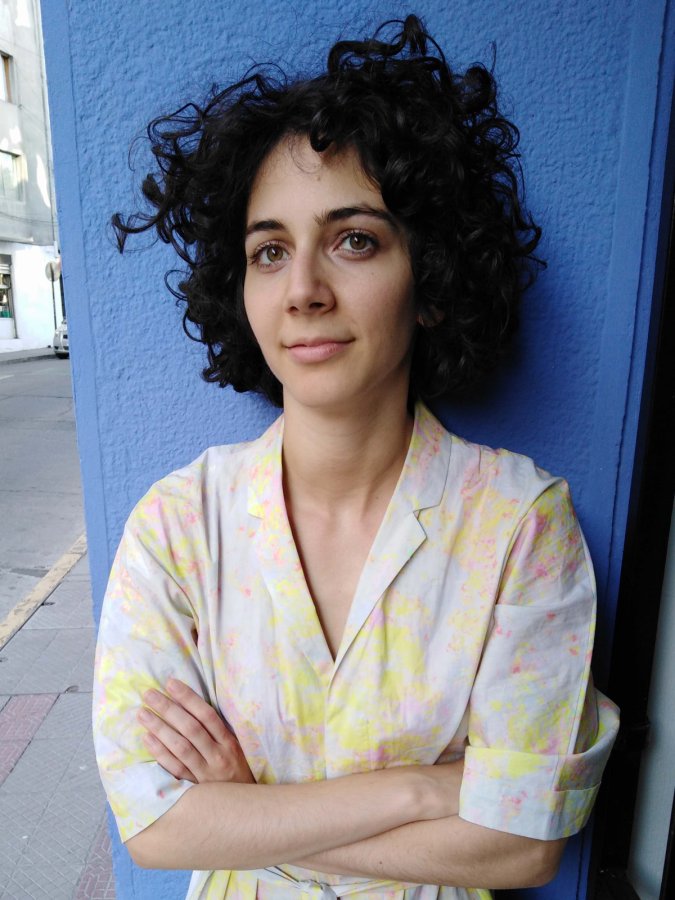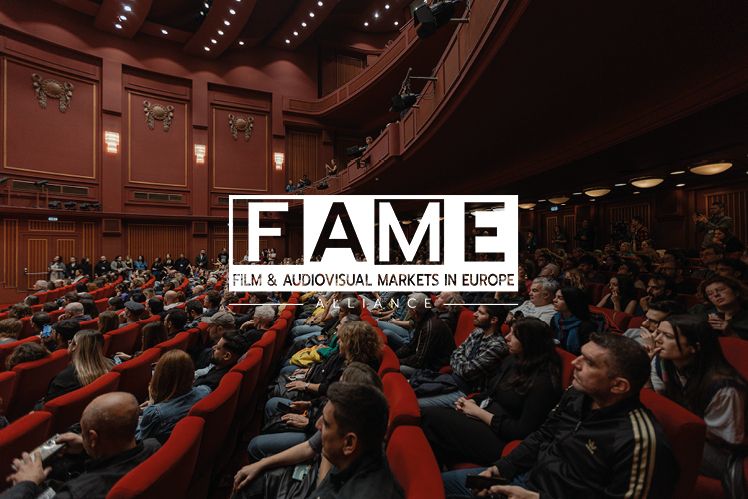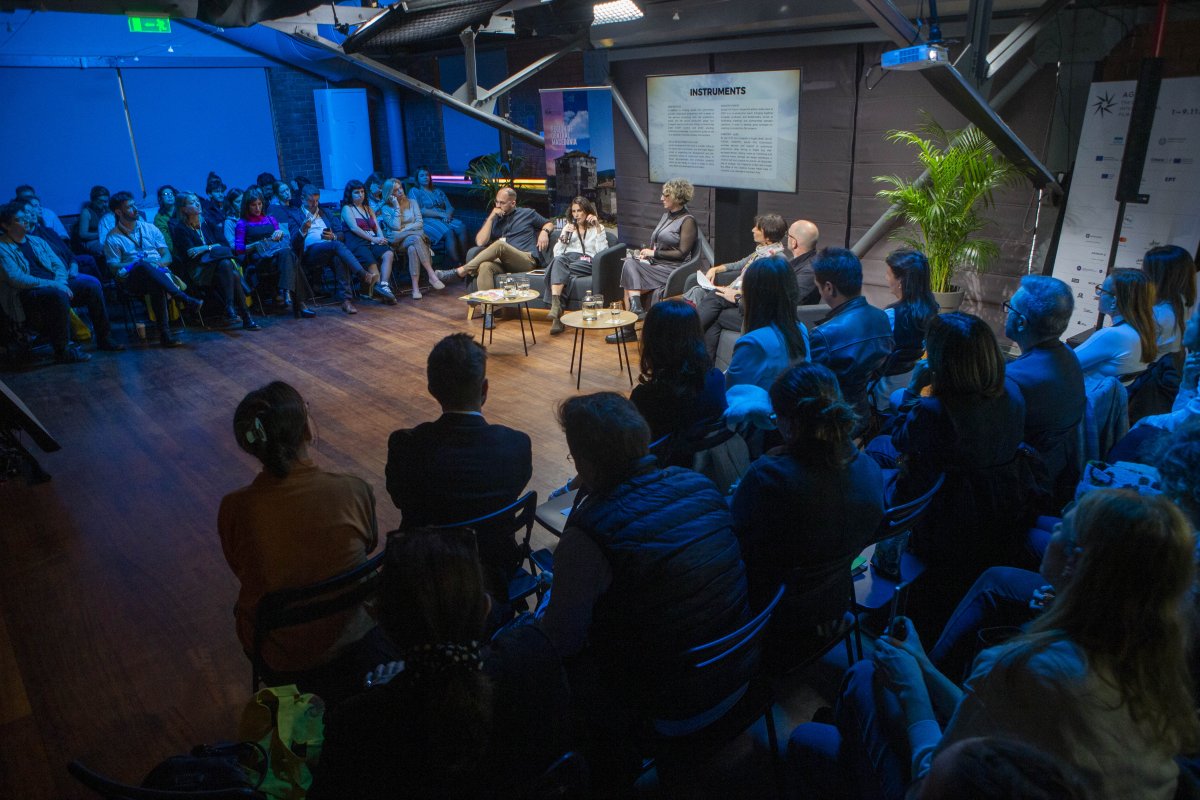19th Thessaloniki Documentary Festival
3-12 March 2017
JUST TALKING
SATURDAY 11/3
3-12 March 2017
JUST TALKING
SATURDAY 11/3
The “Just Talking” section of the 19th Thessaloniki Documentary Festival was completed on Saturday, March 11th 2017, at the “Room with a view” Cafe of the Olympion complex. The discussion, moderated by TIFF’s Head of Programming Yorgos Krassakopoulos, was attended by directors Olivier Jourdain (Sacred Water), Maria Kourkouta (Spectres are Haunting Europe), Maurice Dekkers (Ants on a Shrimp) and Yorgos Panteleakis (The Wonder Kid).
After a short presentation of their films, the directors had a discussion on various topics.
How did the idea for your film occur and when did you decide that it was a story worth telling?
Yorgos Panteleakis made the film Boxer in 2013; the topic of the film was amateur boxing in Greece. During the shootings he managed to obtain some footage of the boxer who, in his own unique style, became the world champion twice and is the protagonist of his documentary The Wonder Kid.
Maurice Dekkers initially mentioned that he used to work as a journalist for the Dutch TV for 12 years, focusing on food-related issues, but then he wanted to do something completely different, fun and not related to journalism. He met the protagonist of his documentary, chef Rene Redzepi, and the film simply happened; it was a fantastic experience, as he noted.
For her part, Maria Kourkouta completed the filming within two weeks’ time, without any prior planning. She had been travelling around Greece shooting another film and found herself in Idomeni as a solidarity visit, but having with her all the filming equipment. Two to three months later, when, together with the co-director Niki Giannari, they happened to watch the footage they had shot there, they decided to make the documentary Spectres are Haunting Europe.
Olivier Jourdain, on the other hand, said he decided to get involved with the issue of female sexuality in Rwanda after his first encounter with this topic in 2009. Three to four years of research followed, during which he interviewed many anthropologists, having himself the same background, while he also travelled to the region many times, until his film was completed.
How do you handle your presence in a foreign community? Do you get noticed or are you invisible? Does this really matter?
“It matters to the people, because they are not actors, they are not used to cameras being around and they need to relax”, commented Yorgos Panteleakis, adding that even during the initial interviews no one is relaxed. Maurice Dekkers highlighted that, with the people he filmed “a trusting relationship had to be built, but they always knew that I was there”, adding that they never complained, since they were equally devoted to their own work and him.
It was a totally different situation in Idomeni, said Maria Kourkouta, since there were some 15.000 refugees in the region, but also many reporters. What those people wanted was simply to cross the borders and they didn’t care whether someone was filming them; therefore, anyone with a camera – a digital camera, to be precise – could be invisible. But when she did the shooting with a 16 mm camera, which is quite huge, it was difficult to pass unnoticed and her experience was very different then.
As Olivier Jourdain pointed out, he had to develop a good relationship with the people he was filming, since he was going to document their very private moments. What was important for his characters was that there would be no translator present in those scenes, so that what was said wouldn’t be immediately understood and this way they would be able to express themselves more easily.
Is it an advantage or disadvantage for a director to have a large amount of footage, particularly with regard to the capabilities offered by digital technology?
Olivier Jourdain pointed out that it is both an advantage and a disadvantage to shoot digitally, noting that he did in fact have a large amount of footage and that the editing had to be done by two persons. Eventually, out of 80 hours of filmed material, they ended up with a one-hour film.
Maria Kourkouta believes that if you want to shoot a film, the medium doesn’t really matter. Digital technology offers a lot of capabilities, while one must be more specific when working with film, she said, adding that the work must be carried out more consciously during the filming process and not in the editing room.
For his part, Maurice Dekkers began working with film and said that the approach is different in film and digital media. He added that he had accumulated many hours of footage, but noted that, as far as he is concerned, not everything must go through the editing room, something that he realised from his experience in the production of television documentaries.
Yorgos Panteleakis had previously worked both with film and digital media but, as he noted, he wouldn’t choose to make a documentary with film because it is costly and time-consuming. He usually edits his filmed material himself and for this documentary he had accumulated a lot of footage, but sometimes, as he said, it’s good to have a fresh eye during the editing process.















